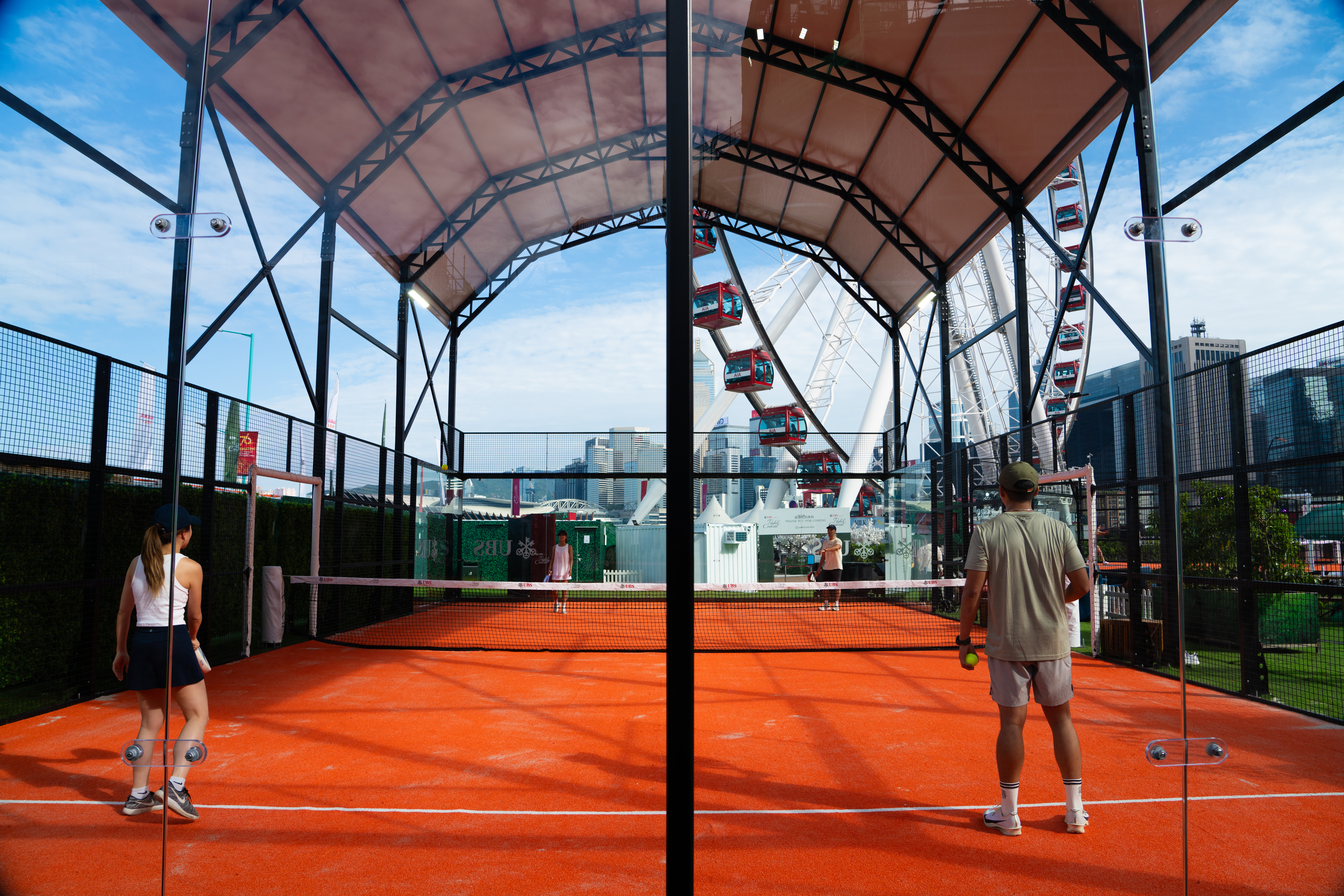In just a few months, the world’s premier international sporting event returns to Beijing for the 2022 Winter Olympics. Thousands of athletes will soon descend upon China’s capital to compete for gold, displaying the pinnacle of athletic performance in their respective sports.
But it isn’t just the athletes that will be on display at next year’s Games.
When Beijing hosted the Summer Olympics back in 2008, one of the three stated visions for the event was to create a “high-tech Olympics,” with more than 400 million USD of the 2 billion USD budget dedicated to science and technology projects.
Fourteen years later, the bar for what constitutes high-tech has undoubtedly been raised, and Beijing appears to be on the cutting edge once again. Below are just a few of the technological innovations expected at Beijing 2022, spanning everything from retail to medicine to infrastructure.
1. Driverless Retail Minibus

According to state-backed outlet China Daily, the vehicles are equipped with a “5G-enabled, intelligent vehicle networking system,” allowing passersby to summon the mobile shop with the wave of a hand. Buyers can also place orders remotely through their phones, after which a bus will deliver the order directly to them.
The driverless retail buses use 5G technology from China Unicom, the official telecom provider for the 2022 Winter Olympics, and rely on the BeiDou Navigation Satellite System. Customers can purchase several items from the minibuses, including water and souvenirs.
2. Digital Currency

Much like US-based Ripple’s XRP coin — known as a stablecoin because its price remains consistent with the value of the US dollar — the digital renminbi, or e-RMB, mirrors the value of the Chinese currency.
However, a notable difference is that while Ripple operates independently from the American banking system and the federal reserve, the e-RMB is supported by the People’s Bank of China — the country’s national bank. Attendees can use the digital coin to purchase just about anything, with several crypto-wallet-equipped gadgets already in the works, including smartwatches, cards, bracelets, e-certificates, and badges.
With Beijing winter in mind, there’s even a set of gloves equipped with a “digital renminbi wallet module.” Users can simply wave their hand near a pay area to complete a transaction, such as a vending machine or metro turnstile. The gloves utilize near field communication (NFC) technology, allowing the digital wallets to function even without an internet connection.
3. Virtual Reality Broadcasting

China has implemented some of the strictest preventative measures globally to reduce the spread of Covid-19 within its borders — and to great success.
Unfortunately for would-be international visitors, that strategy likely isn’t changing come opening ceremony, and with few exceptions, the majority of spectators at Beijing 2022 will be Chinese nationals who meet “specific requirements.”
Luckily for those unable to attend, China Unicom is developing technology that will help sporting events broadcast live with enabled virtual reality and augmented reality features. In addition, the company plans to provide ultra-high-definition content to viewers abroad, with quality ranging from 4k to 8k.
4. Groundbreaking Green Tech

Hot off the heels of the COP26 climate conference in Glasgow, the Beijing Olympics aims for carbon neutrality through measures to offset any carbon emissions and reduce carbon in the atmosphere.
Organizers will utilize a quick-disassembly and dynamic-leveling monitor system to transform the Water Cube — a multipurpose venue for the Games — from a water sports venue to an ice sports facility in just 20 days. Meanwhile, the Bird’s Nest Stadium has also been modified into a low-carbon venue with the help of artificial intelligence, according to Tempo.co.
The Ice Ribbon — China’s National Speed Skating Oval — has also gotten close to zero carbon emissions using “carbon dioxide trans-critical direct ice-making technology.” And while that may sound like nonsensical jargon, the outcome is a big deal when it comes to an energy-intensive process like ice making.
Venues at the 2022 Winter Olympics will be powered by wind and solar energy, and organizers claim that they will use “world-leading water-conserving equipment” to produce snow.
5. Air Purification
 Olympic venues will all use large mobile air purifiers to remove bacteria from the air as an added safety measure.
Olympic venues will all use large mobile air purifiers to remove bacteria from the air as an added safety measure.
The state-backed publication Global Times reports that the units are a product of Shenzhen Kangfeng Air Purification Technology Co, which also provided the technology to the 130th Canton Fair in the southern Chinese city of Guangzhou in October of this year. Among the 600,000 in-person visits, not one case of Covid-19 was documented.
We’ve also seen similar air-purifying robots at numerous airports in China throughout the pandemic.
6. Robots, Robots, and More Robots
 Think of a task, any task that staff at a major sporting event might need to do. Have you got one? Well, the Beijing Olympics have a robot that can do it too, and probably better.
Think of a task, any task that staff at a major sporting event might need to do. Have you got one? Well, the Beijing Olympics have a robot that can do it too, and probably better.
While that may be a little hyperbolic, there does seem to be a robot or AI-enhanced tool for just about every challenge the Games presents. According to Global Times, there’s a robot barista that will grind, brew, and serve a cup of coffee in just four minutes.
Another robot specializes in logistics, with the ability to make contactless deliveries while carrying up to 300 kilograms of goods, and it can even recharge itself.
The medical center will have surgical robots in case of emergency, each able to operate in a more precise, less invasive manner than their human colleagues. (A fun side note: China’s emergency preparedness plan involved two years of alpine ski training for select doctors, who can now reach an injured athlete in under four minutes.)
Guests can also expect to see a fleet of robots tasked with reducing the risk of Covid-19 transmission, including robots that dispense hand sanitizer, monitor guests for compliance with mask usage, and spray mist to clean the air and ground. Each robot is said to do the work of three or four volunteers.
All images by Haedi Yue



















